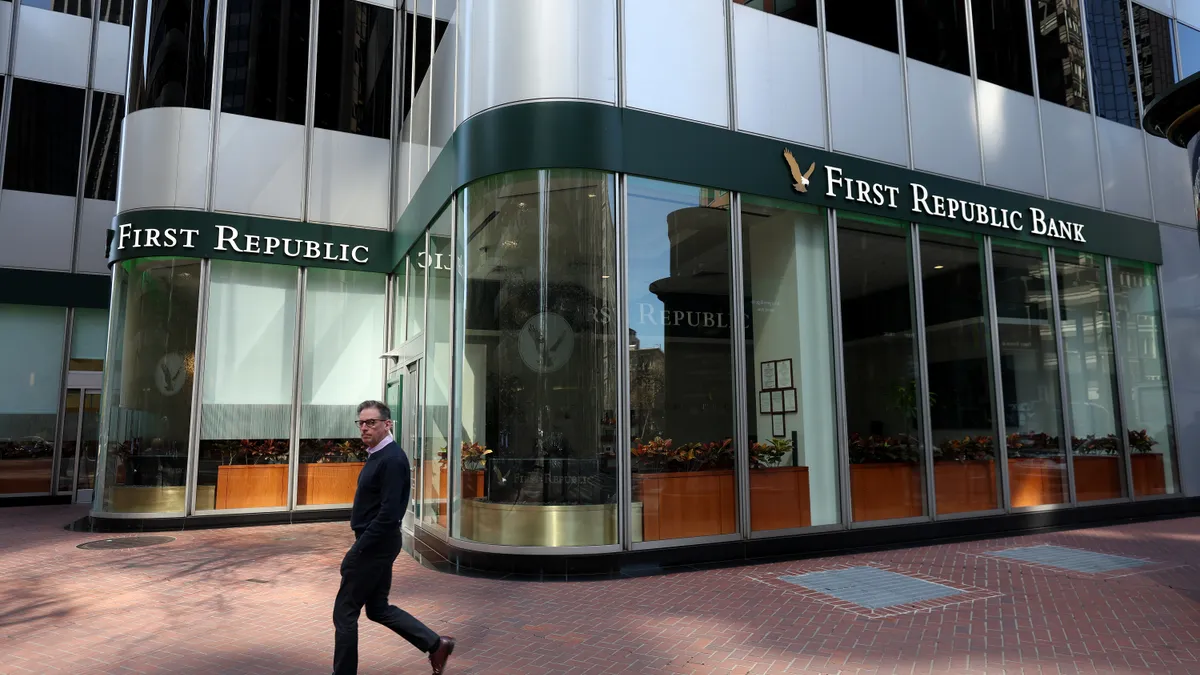Dive Brief
-
CFOs are concerned but not shocked by the seizure of San Francisco, California-based First Republic Bank, a sharp contrast to their reaction following Silicon Valley Bank’s collapse in March, according to Jack McCullough, founder and president of the CFO Leadership Council.
-
Finance chiefs were better prepared for FRB’s unraveling, in part because of the lessons they learned from SVB and subsequent adjustments they made to their banking strategies, McCullough said in an email responding to questions from CFO Dive.
-
“Many CFOs had already changed their firm’s banking practices. Some moved their money completely from [First Republic], and others diversified even if they kept most of their funds there,” McCullough wrote, adding that finance leaders had learned “valuable lessons” from SVB’s collapse and that many now have a “quick-trigger game plan in place should another domino fall.”
Dive Insight:
There are a number of factors that may be playing into the more muted responses of finance chiefs to the latest bank failure. For one, signals of the ailing FRB’s financial woes have been flashing for some time, even after the bank received a $30 billion infusion from 11 banks in March, as Industry Dive’s sister publication Banking Dive reported.
“I won’t go so far as to say people were predicting it, but nobody was shocked…few were even surprised,” McCullough wrote.
They are, however, still somewhat wary, according to a poll McCullough conducted on LinkedIn Monday, which asked how concerned respondents were about the FRB failure. Almost half (47%) were “moderately concerned,” 35% were “not particularly concerned,” and only 4% were “very concerned — game changer.”
Overall since SVB’s failure, CFOs have also taken better stock of their banking strategy and are in closer communication with their boards, McCullough wrote. During the week that SVB failed his group had three member-only meetings and about 350 finance chiefs attended a series of Zoom calls.
Most of the CFOLC’s members were not CFOs in 2008, meaning it was the first time they’d managed through a banking crisis, he wrote. After the SVB collapse, veteran CFOs who survived the prior banking crisis shared practical advice with younger executives, he said.
“The young members took these lessons to heart,” McCullough wrote.












